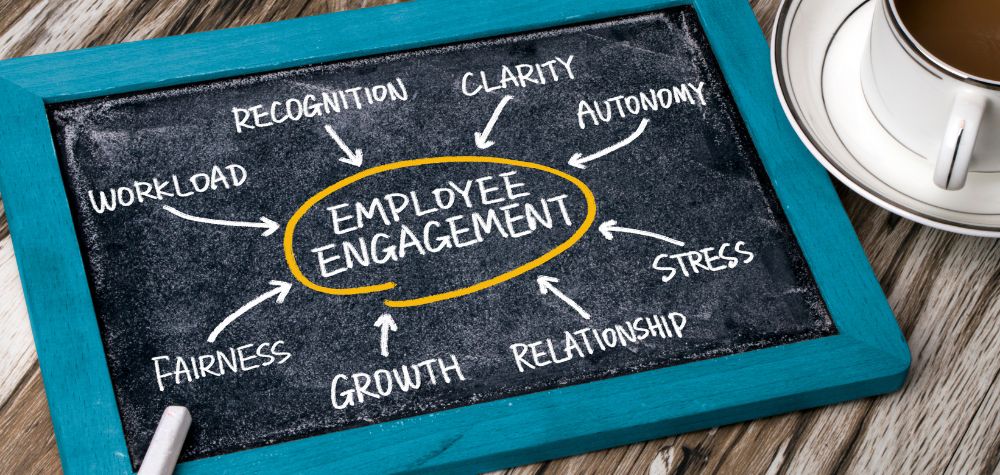How Can You Engage Your Employees Better?

Employee engagement is crucial for organisational success. Without employees who are engaged, your business has more risk and less opportunity to succeed.
An engaged employee is someone who is emotionally invested in their work, committed to the organisation’s goals, and motivated to contribute to its success.
Engaged employees go beyond simply fulfilling the basic requirements of their job; they actively seek ways to enhance their performance, collaborate with colleagues, and contribute innovative ideas.
Having strategies in place in the workplace to promote and contribute to employee engagement can lead to a positive and engaged workforce.
Clear Communication
Foster open and transparent communication channels. Keep employees informed about company goals, changes, and updates. Encourage two-way communication through regular town hall meetings, surveys, and feedback sessions. Having regular meetings with employees to check in can help re-engage employees.
Meaningful Recognition Programs:
Implement a robust employee recognition program that acknowledges and rewards employees for their hard work and achievements. Recognition can take various forms, including verbal praise, awards, and opportunities for career development.
Regular Feedback and Performance Reviews:
Provide consistent and constructive feedback on individual and team performance. Regular performance reviews can help employees understand their strengths, areas for improvement, and how their work contributes to the organisation’s overall success.
Professional Development Opportunities:
Invest in the continuous learning and development of employees. Offer training programs, workshops, and opportunities for skill enhancement. This not only benefits the individual employee but also contributes to the organization’s growth.
Flexible Work Arrangements:
Embrace flexible work arrangements, such as remote work options, flexible hours, or compressed workweeks. This shows trust in employees and acknowledges the importance of work-life balance.
Employee Wellness Programs:
Prioritise the well-being of employees by offering wellness programs. These can include health initiatives, mental health support, fitness programs, and stress management workshops.
Team-Building Activities:
Organise regular team-building activities to foster a sense of camaraderie among employees. This could include team outings, retreats, or virtual team-building activities for remote teams.
Inclusive Culture and Diversity Programs:
Cultivate an inclusive workplace culture where diversity is celebrated. Implement diversity and inclusion programs to ensure that all employees feel valued and included.
Leadership Development Programs:
Invest in leadership development programs to ensure that managers and leaders have the skills to effectively lead and inspire their teams.
Flexible Benefits Packages:
Provide a range of flexible benefits that cater to the diverse needs of employees, such as health insurance options, wellness benefits, and flexible spending accounts.
Employee Involvement in Decision-Making:
Involve employees in decision-making processes when feasible. This can include seeking input on projects, involving them in strategic planning, and encouraging innovation.
Celebrating Milestones and Achievements:
Recognize and celebrate both individual and team milestones and achievements. This can be done through internal communications, ceremonies, or small celebrations.
Encourage a Positive Work Environment:
Foster a positive work environment where employees feel comfortable, appreciated, and motivated. This includes maintaining a clean, comfortable physical workspace and promoting a positive organizational culture.
Remember, the key is to tailor these strategies to your business and team’s specific needs and culture. Regularly reassess the effectiveness of these initiatives and be willing to adapt and evolve them as the organization grows and changes.




